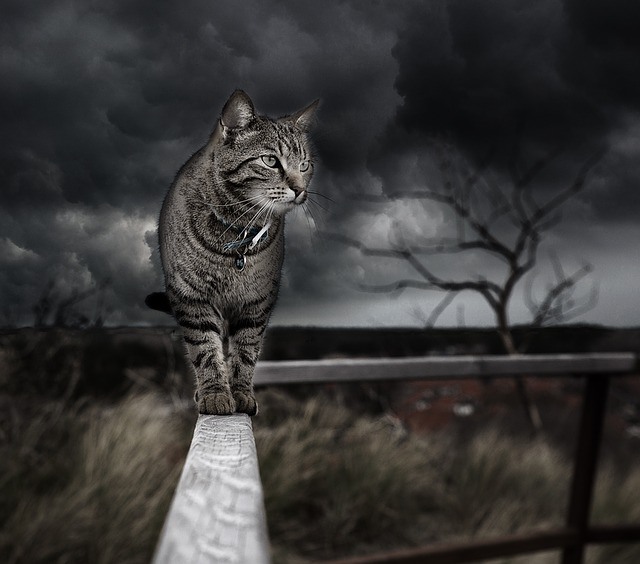by Crystal Caudill | Oct 18, 2017 | Writing Craft

“It is a truth universally acknowledged, that a person in possession of voices in their head, must be an author.”
Okay, so not the most eloquent remastering of the Pride and Prejudice quote, but a truth all the same. Only for authors is it socially acceptable to be insane. If anyone else talked about hearing voices in their head it would be a one-way ticket to the asylum. But voices we hear – the voices of our characters.

A couple months ago, I talked about developing our “Author Voice”, but sometimes what I find even more challenging is developing unique character voice. Someone once told me that each character must have a voice so unique you can read a line or two without an identifier and still be able to determine whose POV it is or who is talking.
Am I the only one that cringed and wanted to hide their manuscript?
Over the last few months, I have developed a few tricks to help me create these unique voices, especially in my character POVs.
Character Voice Hints
1. When writing in a certain POV, I try to sink into what is called Deep Point of View. Essentially it is writing like the entire scene is happening through the thoughts of the character without actually being thought dialogue.
Example:
Instead of: She touched his forehead to check for fever.
Try: Burning heat suffused the air between her palm and his forehead. Oh no. The fever had returned.
2. Give certain frames of references to each character.
Example:
My heroine grew up under the guidance of her military grandfather, who treated her just like a soldier. When writing in her POV, I use military terms, descriptions that line up with military thinking, and actions that reveal her military upbringing.

“His words cannonballed into the soft soil of her soul, crushing it beneath their weight and force.”
My hero, however, does not have this upbringing, but he is a Secret Service operative. So I have him behave, think, and speak like one.
“Edward beat him to the corner seat that gave a clear view of the room. Only criminals and lawmen worried about protecting their backs while observing others.”
Please note, these are unpolished sentences, but they are just to give you an idea of how to work that in.
3. Give them unique phrases and quirks.
Example:
The heroine may say “Oh skunk!” when she is upset, while the hero may rub at a hidden rock in his pocket.
4. Take into account their education level.
If the heroine has had a lot of education, then her word choices should reflect it, but if she is a self-taught woman her choices may be different.
Example:
“The sunset is absolutely exquisite tonight.” vs “It sure is a pretty sunset tonight.”
5. Consider Dialect
Each region has its own turn of phrase and accents. In July, my family and I went on a mission trip and one of the leaders was from Minnesota. Her “o” sounds were unique as well as her use of “You betcha” and “Oofta sakes.” If your characters are from different regions or ethnic backgrounds, take that into consideration.

Example:
One of my villain’s henchmen is Irish. I did a little research and made sure I wrote the dialect correctly and even worked in some sayings into the conversation.
“May the cat eat ye, and the devil eat the cat!” (My personal favorite.)
Your Turn
How do you help the voices of your characters to stand out as unique? Are there certain resources you use to help? If you are comfortable, share a couple examples of your character voices.
by Crystal Caudill | Aug 23, 2017 | Writing Craft

Voice seems to be one of those elusive things I have encountered as an aspiring author. What is it? How do you know what your voice is? How do you know if it is unique? Until recently, I just avoided the whole issue because it seemed so convoluted.
But the day must come when we chase down that elusive concept in order to fully develop into who we are. So here it is, wrong or right, my own view and explanation of voice.
Author Voice:
An author’s voice is not one tangible element in a novel, it is the culmination of all the flavors an author brings to their writing. From genre choice, to settings, typical characters, humor, to even word choice – it all goes to develop a unique voice.
Take a look at this picture:

What story comes to your mind?
My first thought was a woman lying in bed, fumbling for a shoe to throw at the cat that never stops meowing out her window. Typical image? Yes, but give me time and I will develop it into a storyline that is unique. What if she killed the cat by accident? And what if it was her neighbor’s prize winner? Or even better, there was a note attached to it revealing a danger no one could have foreseen. Oh, so many ideas are skittering through my mind…
Maybe your first thought was a mystery, a ghost story, or something altogether different. Your author voice can change depending on your genre choice, and most of us tend to pick a particular genre and stick to it.
Three Examples:
 Mary Connealy has a voice I love. She has humor focused on the cowboy days of the west. Her females are almost always strong, independent women with quirky ways. Her characters are always unique and at odds with each other. Whenever I pick up one of her books I know there will be an element of danger, sweet romance, a splash of humor, a cowboy setting, and characters that make me smile.
Mary Connealy has a voice I love. She has humor focused on the cowboy days of the west. Her females are almost always strong, independent women with quirky ways. Her characters are always unique and at odds with each other. Whenever I pick up one of her books I know there will be an element of danger, sweet romance, a splash of humor, a cowboy setting, and characters that make me smile.

Jen Turano is another author with a unique voice. Whenever I pick up one of her books, I know they are going to take place in a city setting, with characters who are oddball in some way, danger will ensue, and hilarity prevails. When I need a good laugh, I turn to her or Karen Witemeyer.

My friend and critique partner, Joanna Davidson Politano, will be releasing her debut novel in October. While I won’t share details of her story now (you will have to wait until next month) Joanna has a voice that makes me swoon. Whenever I read her submissions, I know I will step into a Regency world clouded with mystery. Her books read like a mix of Bronte, Daphne Du Maurier, and Dickens. To read her work is to float through a world that entrances and intrigues, and I absolutely cannot wait for you to read her books!(Okay, swooning over.)
Bottom line, your voice is what a reader can expect to find when they pick up your book.
Finding Your Voice
Evaluate your writing. Do you notice certain trends? Are your stories dialogue heavy? Witty? Detail oriented? Do you add humor to your work? A little? A lot? Do you have odd ball characters? Do you choose a particular type of hero?
What settings do you tend to choose? Cities, the country, a particular region? Are they darker, brighter? Winter, Summer, Autumn, Spring? That can change with each book, but if you notice a particular trend, that just may be part of your voice.
Is your writing very formulaic or is it organic? Susie May Warren is very formulaic in her writing. She works in twenty chapter patterns and has a plan of what has to happen in each segment of her story. For others, there is no discernable pattern beyond the standard three-act plot.

By evaluating your writing, you can determine your strengths and weaknesses, elements that you want to refine and improve upon, maybe even elements you want to weed out of your writing altogether.
My voice is still developing, but I have decided that my voice includes a few elements: Danger and murder plots, women who are independent but get into lots of trouble, heroes who generally fall into the law enforcement category, clear villains, a splash of humor (although nowhere near the amount I thought I would have), and broken families. Forgiveness, redemption, and family are strong threads in what my stories encompass. Do I have a lot of work left? You betcha! Is my voice completely clear and finished? Nope, but I am working on it.
Now it is your turn to share. Comment below.
What do you want a reader to expect when they pick up your books? Have you discovered your own voice? Do you agree or disagree with my view of author voice? What would you add to this?






 Mary Connealy has a voice I love. She has humor focused on the cowboy days of the west. Her females are almost always strong, independent women with quirky ways. Her characters are always unique and at odds with each other. Whenever I pick up one of her books I know there will be an element of danger, sweet romance, a splash of humor, a cowboy setting, and characters that make me smile.
Mary Connealy has a voice I love. She has humor focused on the cowboy days of the west. Her females are almost always strong, independent women with quirky ways. Her characters are always unique and at odds with each other. Whenever I pick up one of her books I know there will be an element of danger, sweet romance, a splash of humor, a cowboy setting, and characters that make me smile.

